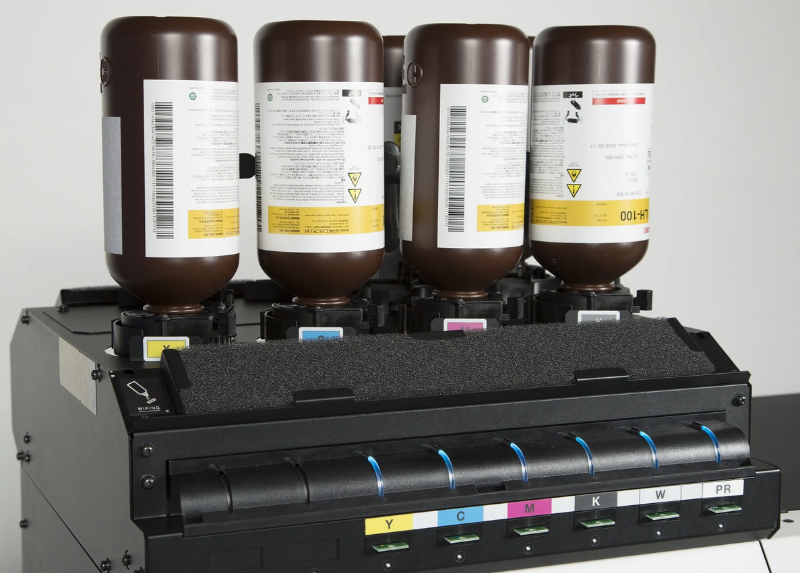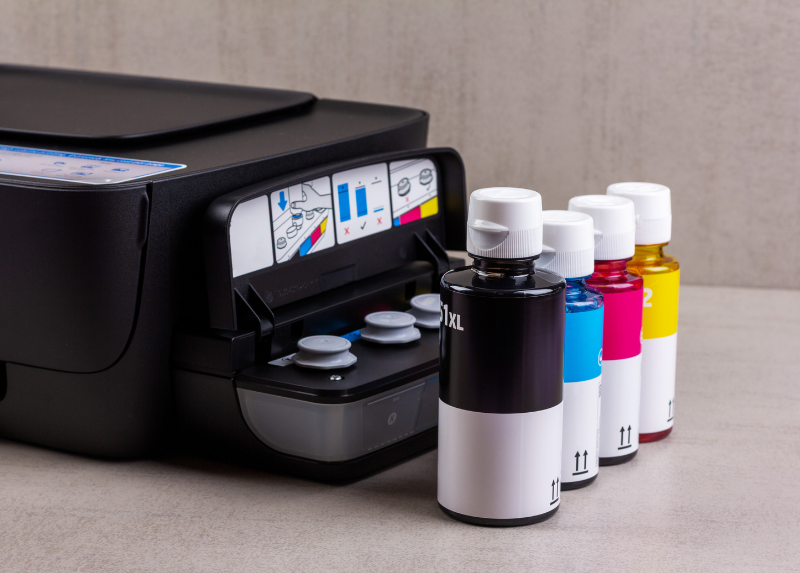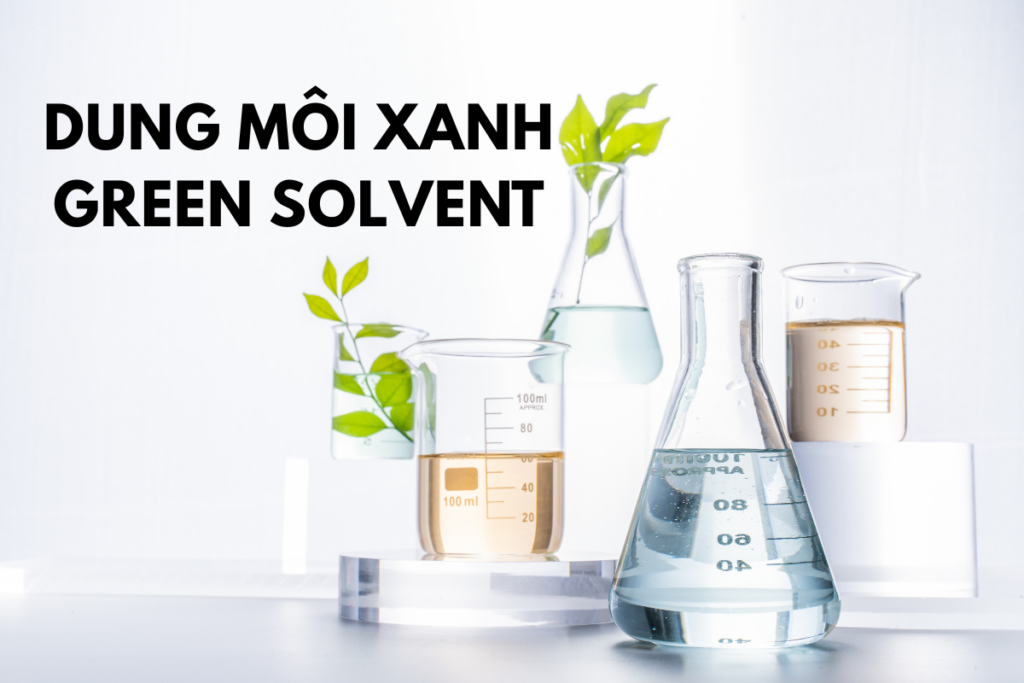What is a CAS Number in Viet Nam? How to Register and Look Up CAS Effectively
30/06/2025
|
Industry news
A CAS Number (Chemical Abstracts Service) is a critical tool for identifying and managing chemicals worldwide. It is widely used in research, industry, and commerce. By ensuring accuracy and consistency in the identification of chemical substances, CAS Numbers assist businesses, scientists, and regulatory authorities in easily searching, declaring, and complying with legal requirements. The following article provides detailed information about CAS Numbers, including how to register, declare, and look them up effectively especially within the context of Vietnamese regulations.
What Is a CAS Number?
A CAS Number (Chemical Abstracts Service Number) is a unique numerical identifier assigned to every chemical substance, compound, polymer, mixture, or protein by the Chemical Abstracts Service, a division of the American Chemical Society (ACS). This number enables the precise identification of chemical substances, avoiding confusion caused by different names (e.g., ethanol may also be known as ethyl alcohol or ethyl hydrate, but its CAS Number is 64-17-5). CAS Numbers are extensively used in research, industry, international trade, and chemical safety management.
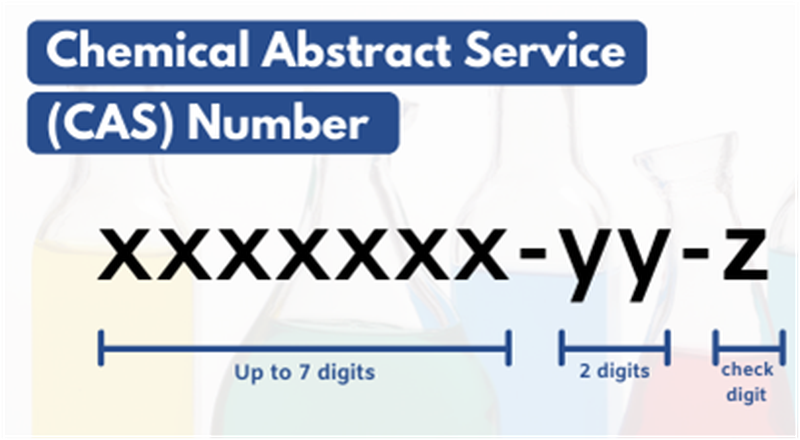
How to Read a CAS Number Correctly
A CAS Number has no inherent chemical or structural meaning it serves solely as a unique identifier. To read and verify a CAS Number, you need to understand how the check digit is calculated:
- How to calculate the check digit:
-
- Read the digits from right to left, excluding the check digit, assign ascending weights: 1, 2, 3, …
- Multiply each digit by its corresponding weight, then sum the results.
- Divide the total by 10, the remainder is the check digit.
- Example: The CAS Number for Dimethyl Carbonate (DMC) is 616-38-6
- Digits (excluding check digit 6): 8, 3, 6, 1, 6
- Weights: 1, 2, 3, 4, 5
- Calculation: (8×1) + (3×2) + (6×3) + (1×4) + (6×5) = 8 + 6 + 18 + 4 + 30 = 66
- 66 ÷ 10 = 6 remainder 6 → Check digit is 6, confirming the CAS Number is valid.
To read aloud, simply recite the digits in order, e.g., “six one six, three eight, six.”
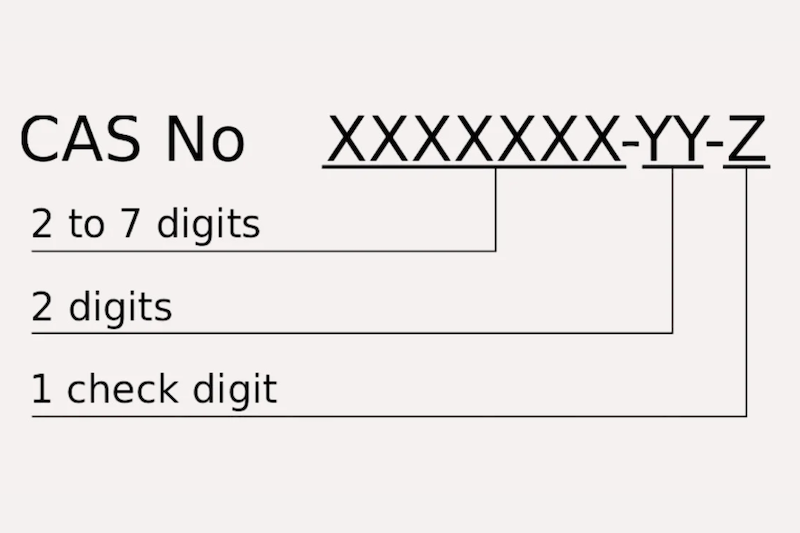
Which Chemicals Require a CAS Number?
Most chemicals used in industry, research, or commerce are assigned a CAS Number for identification and management purposes.
- Chemicals that require a CAS Number include:
-
-
- Elements, compounds, mixtures, polymers, proteins, enzymes, organic substances, etc.
- Chemicals used in industrial, medical, agricultural, or manufacturing applications.
- Chemicals listed for mandatory declaration under legal regulations (e.g., Appendix V of Decree 113/2017/NĐ-CP in Vietnam, which includes 1,156 substances).
-
- Cases exempt from CAS declaration (under Vietnamese law):
- Imported chemicals under 10 kg per shipment (except for restricted-use substances).
- Chemicals used for national security, defense, natural disasters, or epidemic responses.
- Precursor substances for narcotics or explosives already licensed.
- Drug ingredients with approved circulation certificates in Vietnam.
If a CAS Number is not listed in the mandatory declaration registry (Appendix V), the chemical may be imported as a regular good without the need for declaration.
CAS Number Registration Process
To register a CAS Number for a new chemical, the organization must follow these steps:
Step 1: Identify the New Chemical
- Confirm the chemical has not already been assigned a CAS Number. Search in:
- CAS REGISTRY via SciFinder or STN (subscription required).
- Public databases like PubChem (https://pubchem.ncbi.nlm.nih.gov) or ChemSpider (https://www.chemspider.com).
- If a CAS Number already exists, registration is unnecessary.
Step 2: Prepare Information
Provide detailed data about the chemical, including:
- Chemical structure: Molecular formula, 2D/3D structure (if available).
- Chemical name: IUPAC name or common name.
- Physical and chemical properties: Melting point, boiling point, solubility, etc. (if known).
- Synthesis description (optional but recommended).
- Analytical data: Spectra (NMR, IR, MS), chromatography results, etc., to confirm the structure.
- These details help CAS verify the substance is unique and not a duplicate.
Step 3: Submit a Request to CAS
- Submit an Application:
-
-
- Access the CAS Registry Number Assignment service on the CAS website.
- Complete the online form or send information via email/fax as instructed.
-
- Information Submission Format:
-
- You may submit structural data through software such as ChemDraw, Molfile, or compatible formats.
- For complex substances (e.g., polymers, proteins), direct consultation with CAS is recommended for specific guidance.
- Confidentiality: If the substance is a trade secret, CAS offers a Confidential Registry Number option. The CAS number will still be assigned and stored in the database, but detailed information will only be disclosed with the organization’s permission.
- Processing Time: Processing may take several weeks for complex substances or if further verification is needed. For urgent requests, a priority service is available for an additional fee.
Step 4: Pay the Fees
- Obtaining a CAS number typically involves a fee, which varies depending on the type of substance and requirements (e.g., simple compound, polymer, or trade-secret substance).
- CAS does not publicly list specific fees on its website, but costs usually range from several hundred to several thousand USD.
- Contact CAS for an exact quote via help@cas.org or by calling the support line.
Step 5: Receive the CAS Number
After processing (usually a few days to several weeks, depending on complexity), CAS will provide:
- The official CAS Number (formatted as xxxxxxx-yy-z).
- Confirmation that the chemical substance has been added to the CAS REGISTRY.
This CAS number can be used in documents, MSDS, customs declarations, or product commercialization.
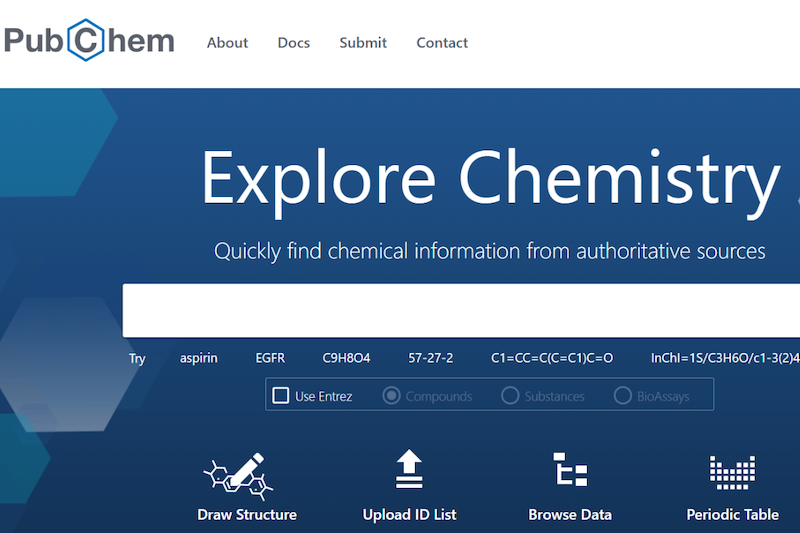
Instructions for Declaring a CAS Number
In Vietnam, declaring the CAS number is mandatory for chemicals listed under the declaration category when importing, as required by Decree 113/2017/NĐ-CP and Official Letter 1850/HQTPHCM-GSQL (2022). Detailed guidance is provided below:
Step 1: Verify the CAS Number
- Identify the chemical composition of the product and the corresponding CAS number (usually found in the MSDS – Material Safety Data Sheet or technical documents).
- Look up the CAS number using the National Chemical Database: http://chemicaldata.gov.vn or international databases like PubChem, ChemSpider.
Step 2: Check the List of Chemicals Requiring Declaration
Compare the CAS number with Appendix V of Decree 113/2017/NĐ-CP (amended by Decree 82/2022/NĐ-CP) to determine if the chemical is subject to mandatory declaration.
Step 3: Prepare the Declaration Dossier
The dossier includes:
- Customs declaration form (Form No. 01 or 02, per Circular 38/2015/TT-BTC, amended by Circular 39/2018/TT-BTC).
- Commercial invoice or Delivery Order (for non-commercial goods).
- MSDS showing the CAS number.
- Sales contract, technical documents (if required).
- All documents can be in electronic form or scanned copies with digital signature verification.
Step 4: Submit the Dossier via the National Single Window Portal
- Go to the National Single Window Portal.
- Log in to your business account (if you don’t have one, register by following the instructions at http://www.ecosys.gov.vn).
- Enter the company details, CAS number, trade name (TM), IUPAC name, and related chemical information.
- Submit the dossier and wait for approval from the Ministry of Industry and Trade.
Step 5: Sign and Submit the Dossier
- Use a digital signature device to sign and submit the dossier.
- If modifications are required, go to the “History” section of the system to make corrections and resubmit.
Note:
- The declaration must be complete and accurate. Failure to declare or incorrect declarations may result in a fine of VND 20–25 million (as per Decree 113/2017/NĐ-CP).
- For assistance, contact the Department of Chemicals at 024.22205118, or the Southern Representative Office at 08.39140840.
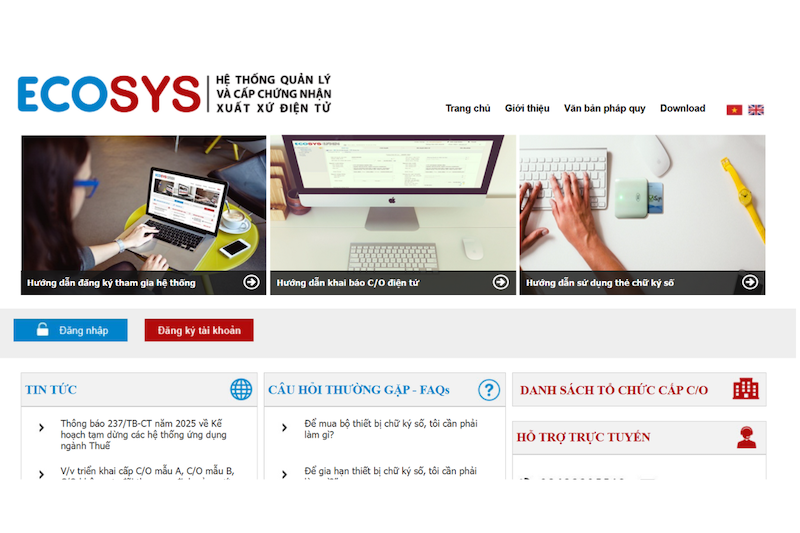
How to Search a Chemical Database Using a CAS Number
Searching by CAS number is a crucial step to identify detailed information about a chemical substance, including its name, formula, properties, and regulatory status. Below is a step-by-step guide to searching CAS numbers via online chemical databases:
https://chemicaldata.gov.vn/tim-kiem/hoa-chat
Step 1: Use Online Databases for CAS Number Lookup
Access reputable databases such as:
- Vietnam National Chemical Database: https://chemicaldata.gov.vn/tim-kiem/hoa-chat
- International sources like PubChem (https://pubchem.ncbi.nlm.nih.gov/) or ChemSpider (https://www.chemspider.com/)
Step 2: Enter the Chemical Name or Formula
In the website’s search bar, input:
- CAS number (e.g., 64-17-5 for ethanol)
- Chemical name (e.g., ethanol or ethyl alcohol)
- Chemical formula (e.g., C₂H₅OH)
Make sure the input is accurate to avoid incorrect results.
Step 3: Click “Search”
Press the “Search” button on the interface:
- On chemicaldata.gov.vn, click the green “Tìm kiếm” button.
- On PubChem or ChemSpider, click the magnifying glass icon or “Search” button.
Step 4: View the Results
Results will display:
- The correct CAS number
- Chemical name (IUPAC and common name)
- Chemical formula and related information (properties, safety, regulations)
Example: Searching for “64-17-5” on chemicaldata.gov.vn returns ethanol, C₂H₅OH, and information about Vietnam’s reporting regulations.
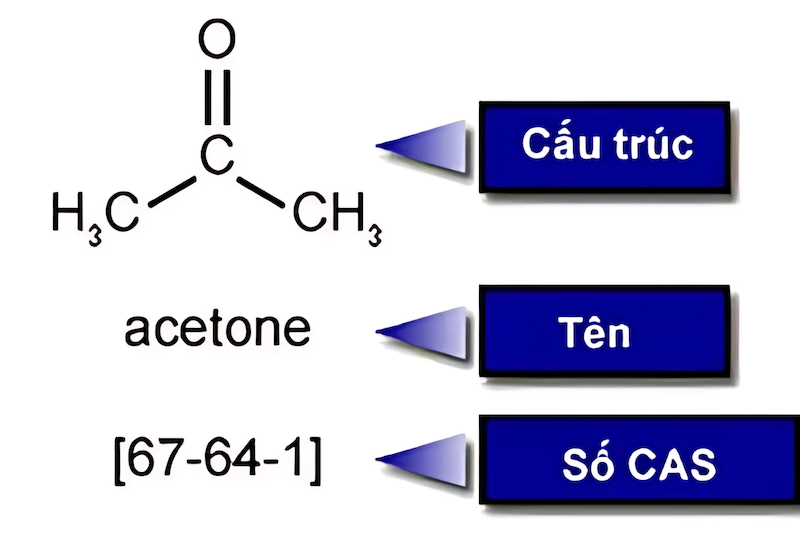
Frequently Asked Questions About CAS
Where Can I Register a CAS Number?
If a chemical product is researched, developed, and manufactured by an organization and requires a new CAS number, the registration must be done through the Chemical Abstracts Service (CAS), part of the American Chemical Society (ACS).
- Sole authority for issuing CAS numbers: Chemical Abstracts Service (CAS)
- Contact methods:
-
- Website: Visit https://www.cas.org and navigate to CAS Registry Services
- Email: Contact help@cas.org or use the official support emails listed on the website
- Phone: Call CAS in the U.S. at +1-800-848-6533 (or +1-614-447-3600 internationally)
- Location: CAS is based in Columbus, Ohio, USA, and supports global registration via online channels
Can a CAS Number Be Changed?
No, CAS numbers cannot be changed. Once assigned by the Chemical Abstracts Service, the number is unique and permanent. If there is an error or confusion regarding a CAS number, the organization should re-check the information or contact CAS for clarification. The number itself, however, remains unchanged.
Can Companies Create Their Own CAS Numbers?
No, companies cannot create their own CAS numbers. Only the Chemical Abstracts Service (CAS), under the American Chemical Society, is authorized to issue official CAS numbers. If a company needs a CAS number for a new substance, it must register through CAS via the official procedure (submit information, pay the fee, and receive the number).
Is a CAS Number Related to the Hazard Level of a Substance?
CAS numbers are not directly related to a chemical’s hazard level. They serve as a unique identifier and do not reflect physical, chemical, or hazard properties. However, CAS numbers can be used to retrieve safety information (such as MSDS) or legal regulations, which may indicate the substance’s danger (e.g., flammable, toxic) through databases like PubChem or chemicaldata.gov.vn.
What Happens If a CAS Number Is Not Declared?
In Vietnam, if a chemical falls under the list requiring declaration (Appendix V, Decree 113/2017/NĐ-CP) and the CAS number is not declared during import:
- According to Article 4, Clause 2 of Decree 71/2019/NĐ-CP, the organization may face a fine from VND 40.000.000 to VND 50.000.000.
- Additionally, the organization may be suspended from importing chemicals for 1 to 3 months from the date of the penalty decision
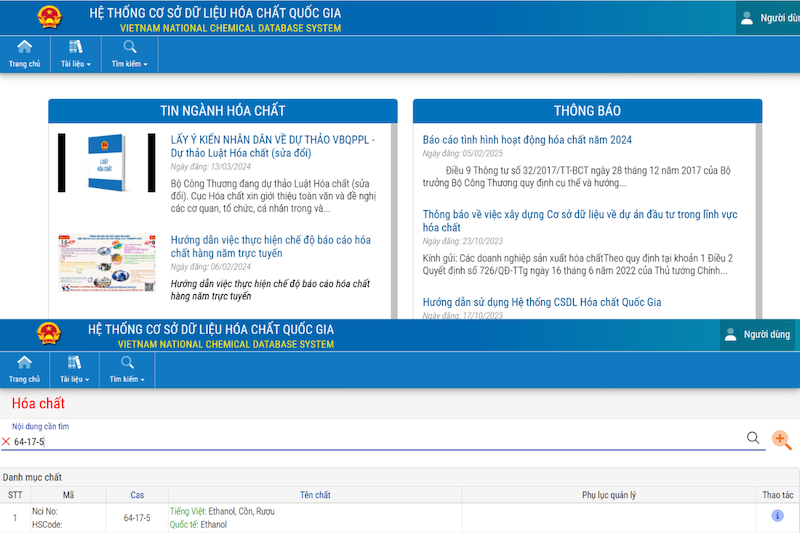
CAS numbers play an indispensable role in the identification and management of chemicals from scientific research to commerce and legal compliance. Understanding how to read, register, declare, and search for CAS numbers not only helps organizations avoid legal risks but also ensures safety and efficiency in chemical management. To follow the correct procedure, always rely on trusted databases such as the CAS REGISTRY, PubChem or the Vietnam National Chemical Database. We hope this article provides useful insights. For further information or chemical usage consultation, please contact K-chem.
K-CHEM VIETNAM CO., LTD
- Address: N6B Road, Lot F, Phu Chanh 1 Industrial Cluster, Phu Chanh Ward, Tan Uyen City, Binh Duong Province, Vietnam
- Tel: +84 274 362 0218
- Email: info@k-chem.vn


